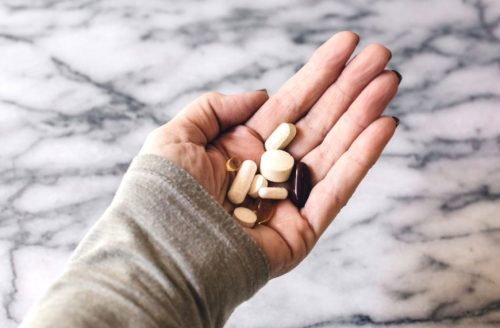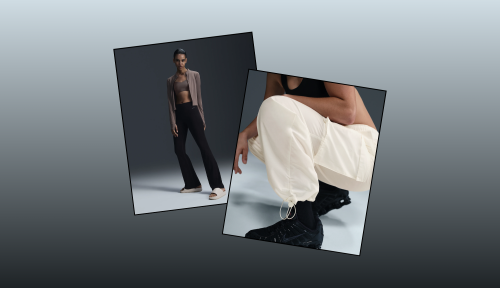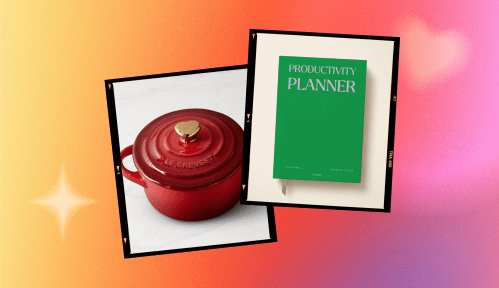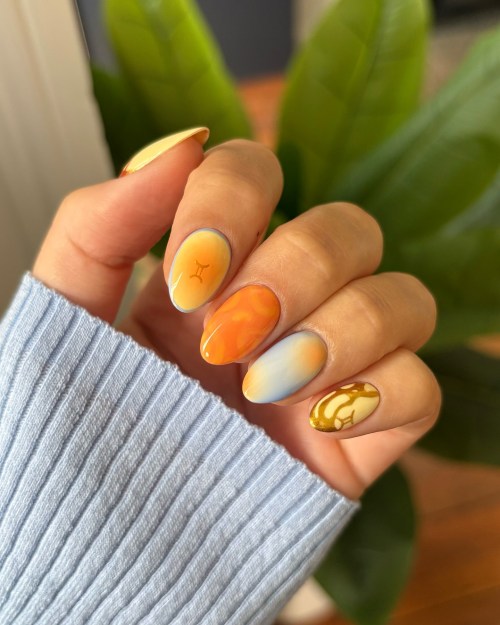Our editors independently select these products. Making a purchase through our links may earn Well+Good a commission
Studies suggest that vegan diets offer a host of wide-ranging benefits, from staving off arthritis to, um, helping you find love. (Okay, maybe the last one isn’t quite so scientific.) The one downside to a plant-based lifestyle? You may find yourself fielding concerned questions from friends, family, and even strangers regarding the state of your health—like the old favorite, Are you getting enough protein?—more often than you’d like.
Irksome as these inquiries may be, they don’t automatically warrant a knee-jerk eye roll. Subscribing to any diet that eliminates entire food groups can require exceptionally mindful meal planning, as well as supplementation. Below, experts weigh in on the key nutrients you may want to consider adding in if you’re vegan. Not only will they ensure you’re feeling your best, but they’ll also help you assure worried parties that you are, indeed, getting enough of everything on your salad-centric diet.
Keep reading to find out which supplements you should take if you’re vegan.
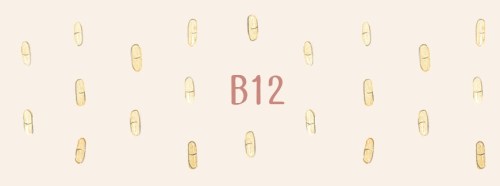
Vitamin B12
According to Neal Barnard, MD, president of the Physicians Committee for Responsible Medicine and a long-time proponent of plant-based diets, vegans only really need to take two supplements regularly in order to achieve optimal wellness. The first he recommends is vitamin B12, a nutrient produced by bacteria that have become scarce in the human body. (He believes this phenomenon’s due to the hygienic practices of modern society).
The intestinal tracts of animals still contain this bacteria, so meat eaters may be able to avoid supplementation. Those who abstain from animal products, on the other hand, will need to add store-bought supplements into their diets in order to meet the recommended dosage of 2.4mg per day, which Barnard says is necessary for healthy nerves and blood cells. “A deficiency can take years to develop, but the first sign is irreversible nerve symptoms,” he cautions. Pretty solid reason to add this one to your cart, ASAP.
Vitamin D
Barnard’s second supplement recommendation is vitamin D, and he’s not the only expert who feels this way. “There are 2 types of vitamin D, Vitamin D2 and D3,” says Lisa Hayim, RD, founder of The Well Necessities. “Vitamin D2 comes from plants and D3 comes from animals and is more potent.”
While she and Barnard both insist that vitamin D can be obtained through sun exposure—twenty minutes a day on your face and arms is sufficient, Barnard says—both advise supplementation when sunlight and outdoor activities are limited. “There are vegan sources of D3 supplements, so just check that yours isn’t made from sheep’s wool,” Hayim adds. You may also want to consider taking your vitamin D with magnesium to get the most out of it.
Omega-3
While Amy E. Chadwick, ND, agrees with Barnard’s supplement prescription, she says she would add omega-3s to this list. “Omega-3 fatty acids help the body maintain an appropriate inflammatory response and are important in brain and nerve health,” explains Chadwick, the licensed naturopathic doctor at Four Moons Spa in “OM-cinitas,” California.
Edison de Mello, MD, PhD, goes on to say that there’s a difference between the type of short-chain, ALA omegas you can get from vegan-friendly foods such as flax seeds and chia seeds, and the long-chain, DHA and EPA omegas that you can get from seafood such as salmon. “These long-chain omega-3 fatty acids play a structural role in the brain and eyes,” says de Mello, founder of The Akasha Center for Integrative Medicine. “Adequate dietary levels also seem important for brain development and preventing inflammation, depression, breast cancer, and ADHD.” To obtain them as a vegan, both de Mello and Chadwick recommend algae-based omega supplements.
Iodine
Also recommended by de Mello? Iodine, which he says is necessary for healthy thyroid function. “Studies report that vegans have up to 50% lower blood iodine levels than vegetarians,” he explains. “Vegans who do not want to consume iodized salt or fail to eat seaweed several times per week should consider taking an iodine supplement.” And be careful not to OD on the raw, cruciferous veggies—they’ve been said to disrupt your thyroid’s iodine uptake when eaten in large amounts, potentially messing with that organ’s ability to work properly.
Iron
Iron, too, may require supplementation, de Mello says. It exists, he explains, in two forms referred to as heme and non-heme. While non-heme iron is found in plants, heme iron is only available from animal products. “Given that heme iron is more easily absorbed from the diet than non-heme iron, vegans are often recommended to aim for 1.8 times the normal recommended daily allowance (RDA),” he says. A deficiency can lead to anemia and symptoms such as fatigue and decreased immune function—two productivity killers that no amount of crystals and EMF blockers on your desk will fix.
Calcium
According to de Mello, there’s a debate in the plant-based community surrounding calcium requirements. Many, he says, believe vegans have lower calcium needs than omnivores because they don’t use this mineral to neutralize the acidity produced by a meat-heavy diet. However, he disagrees. “Although more research is still needed to evaluate how meatless diets affect daily calcium requirements, there is strong evidence that shows that vegans consuming less than 525 mg of calcium tend to have an increased risk of bone fractures,” he counters, explaining that this mineral is essential for our bones and teeth. It also, he adds, plays a role in muscle function, nerve signaling, and heart health.
One caveat: A recent study linked calcium supplements with an increased risk of heart disease. (Scientists believe the body may have trouble processing the mineral in concentrated doses, leading it to collect in the arteries.) So if this is something you’re worried about, you may just want to double down on calcium-rich leafy greens, broccoli, and okra instead.
Zinc
As few plant foods actually contain zinc—and when it is found in plants, it’s not easily absorbed—de Mello encourages vegans and vegetarians to aim for 1.5 times the RDA. He recommends taking a daily zinc gluconate or zinc citrate supplement that provides 50-100 percent of your daily allowance. “Zinc is a mineral crucial for metabolism, immune function and the repair of body cells,” he says. “An insufficient intake of zinc can lead to developmental problems, hair loss, diarrhea, and delayed wound healing, among many other symptoms.” As if you needed another excuse to try that zinc-infused “wild” water all the wellness influencers are raving about…
Want to supplement your vegan diet with all the antioxidants? Try this vegan carrot cake with coconut cream frosting. Plus, Emmy Rossum has an egg-free breakfast idea that will get you out of bed in the morning.
Sign Up for Our Daily Newsletter
Get all the latest in wellness, trends, food, fitness, beauty, and more delivered right to your inbox.
Got it, you've been added to our email list.
